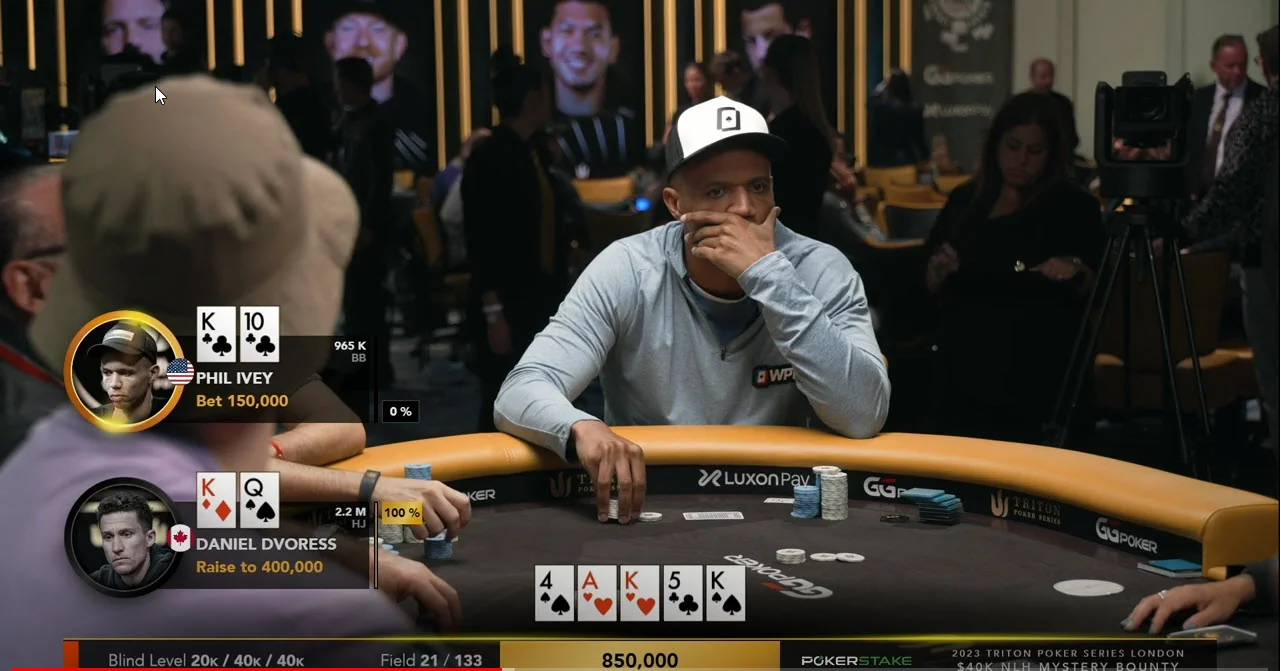مخطط فيل آيفي لفرز حافة القمار بقيمة $20 مليون دولار الذي أنهى مسيرته الأسطورية في القمار

In the world of high stakes gambling, Phil Ivey was undisputedly a legend. With ten World Series of Poker bracelets to his name, the “Tiger Woods of Poker” has dazzled fans with his daring play for decades, backed up by cold, calculating skill. But in 2012, Ivey took a massive gamble not just with money but with his towering reputation – and ultimately lost big time.
When Ivey and his accomplice Kelly Sun exploited minor card flaws to win nearly $20 million playing Punto Banco baccarat, he may have thought he found an ingenious advantage only possible due to his elite mastery of the game. Even the method itself, called “edge sorting”, seemed appropriately named for Ivey’s known penchant to skirt the edges of legal gamesmanship. Ultimately however, his hubris led him down a path to profoundly damaging his once sterling image.

The Temporary Triumph
Initially, as Ivey raked in millions from the Borgata casino in Atlantic City and Crockfords in London through edge sorting undetected, his method appeared brilliant. By convincing casinos to rotate cards a certain way and not change decks often, subtle asymmetric card backs let Ivey recognize high value cards covertly. It gave him a secret window into the game no one else had access to. And casinos obliviously funded his play, unaware of what was really unfolding.
Costly Reputation Damage
But when lawsuits came pouring in from both establishments who felt duped, Ivey unwisely fought back with intense legal action to defend his wins. He had not physically altered the cards he argued; he had simply outsmarted the casinos. But after years of court battles, judges definitively ruled he had maneuvered an illegal edge. Ivey was found liable for deception and cheating through his manipulation.
The ramifications were immense. Ivey kissed $20 million in contested winnings goodbye. Both casinos severed ties fully. His once sparkling reputation took a giant hit for the ethics of his actions. And the wear of long, bitter lawsuits left Ivey looking more a battered, embattled defendant than poised champion by the end. The price for his hubris was clearly steep.

Boom and Bust
In his flush days, Phil Ivey was the envy of every gambler alive. He had the money, the women, the fame, the status. But interestingly, as fast as Ivey won his millions through cunning means, he seemed to lose it even faster in the year afterwards. Bad investments like real estate tanked his net worth. Failed businesses cost him dearly. And soon even Ivey’s sponsorship deals dried up badly.
Of course, luck always plays a role in games of chance. And Ivey has certainly faced gambles in his life far beyond just cards. But when he pushed too far past ethical lines, trying to defend the spirit of advantage play over clear deception, he ultimately paid a high cost for endangering the legendary reputation he built. In a sense, Ivey had gambled with his greatest asset of all – and ended up going bust.
The Morality Tale
Now years later, Phil Ivey remains a master player still admired by many in poker circles. But the edge sorting scandal haunts his legacy profoundly even today. At best, fans debate whether he really cheated anyone. At worst, he is called irreparably unethical. And Ivey himself has faded from the limelight he once dominated so brightly.
It serves as a morality tale in the end. Even legendary gamblers have tragic flaws that precipitate great downfalls eventually. For Phil Ivey, considered the world’s best poker player for years – his obsession to maximize advantage and minimize risk ultimately backfired when taken too far. And his stunning $20 million edge sorting triumph that captivated the gambling world will now forever be tied to disgrace rather than glory.